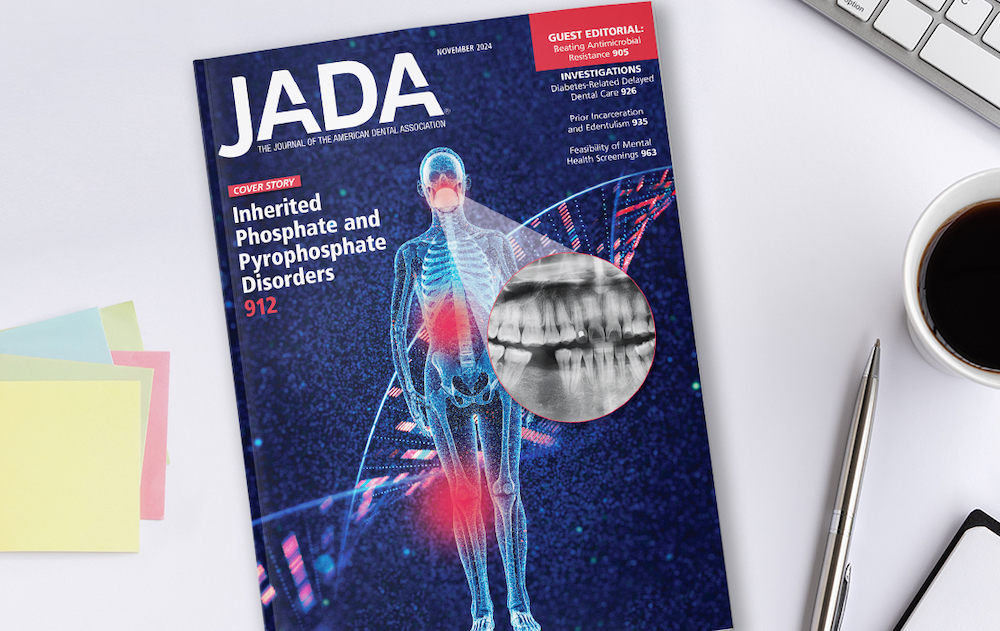November JADA examines therapies for mineralization disorders
Cover story is latest addition to Oral Science Trends series

New antibody and enzyme replacement therapies may improve oral health in patients with disorders that reduce mineralization, according to a study published in the November issue of The Journal of the American Dental Association.
The development of the four mineralized tissues that make up the dentoalveolar complex — enamel, dentin, cementum and alveolar bone — are affected by inherited disorders that disrupt phosphate and pyrophosphate homeostasis. These conditions can lead to reduced mineralization or inappropriate calcification of soft tissues.
The cover story, “Inherited Phosphate and Pyrophosphate Disorders: New Insights and Novel Therapies Changing the Oral Health Landscape,” is JADA’s latest addition to its Oral Science Trends series, made up of invited reviews that explain where current biomedical and clinical sciences are leading to impactful changes in dentists’ ability to provide care and improve health. In it, the authors discuss original data from experiments and comparative analyses and review articles, finding research over the past two decades has expanded the understanding of mineral metabolism and led to novel treatments for mineralization disorders.
“Newly implemented and emerging therapeutic strategies affect the dentoalveolar complex and interact with aspects of oral health care that must be considered for dental treatment, clinical trial design and coordination of multidisciplinary care teams,” the authors said in the article.
Other articles in the November issue of JADA discuss cost-related delays in dental care among diabetic adults, mental health screenings in dental settings and the content and quality of YouTube videos on gingival graft treatment.
Every month, JADA articles are published online at JADA.ADA.org. ADA members can access JADA content with their ADA username and password.



